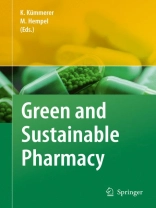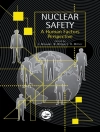Within recent years pharmaceuticals have come into focus as contaminants of the environment (see for example Kümmerer, K. editor: Pharmaceuticals in the Environment). At the same time the issue of sustainable chemistry gained momentum. Bringing both together would result in sustainable pharmacy. Sustainable pharmacy is a totally new issue and approach. It addresses environmental, economical and social aspects of pharmacy. In the present stage the focus will be on environmental issues along the whole lifecycle of a pharmaceutical entity. That is dealing with resources and energy input but also with waste issues for example during the synthesis and production of an active pharmaceutical ingredient. Furthermore, it would also look on the compounds themselves and will aim to improve the degradability of the compounds after their use in the environment to reduce the environmental risk caused by pharmaceuticals in the environment. Another issue is the people using pharmaceuticals such as pharmacists, medical doctors and patients. How can they contribute to more efficient use of pharmaceuticals with less environmental burden and less risk for drinking water. The book ‚Sustainable Pharmacy‘ will address all these issues and will be the first one dealing with this important topic.
Inhaltsverzeichnis
General Aspects.- Why Green and Sustainable Pharmacy?.- Pharmaceuticals in the Environment: Moving from a Problem to a Solution.- Pharmaceuticals in Society.- Green(er) Pharmacy.- Creating a Sustainability Culture – A (Human Resources) Management Perspective for Sustainable Pharmacy.- Reducing the Ecological Footprint of Pharmaceutical Usage: Linkages Between Healthcare Practices and the Environment.- Development, Synthesis and Production and Distribution of Pharmaceuticals.- Ecopharmacostewardship – A Pharmaceutical Industry Perspective.- Protein and Peptide Therapeuticals: An Example of “Benign by Nature” Active Pharmaceutical Ingredients.- Rational Design of Molecules by Life Cycle Engineering.- Use and Disposal of Pharmaceuticals.- Options for a More Environmentally Friendly Handling of Pharmaceuticals.- Disposal of Pharmaceutical Waste in Households – A European Survey.- Pharmaceutical Waste: The Patient Role.- Forecast of Pharmaceutical Consumption in the Netherlands Using Demographic Projections.- Emission Management.- Point Sources of Human Pharmaceuticals into the Aquatic Environment.- Pharmaceuticals for Human Use: An Integrated Strategy for Reducing the Contamination of Water Bodies.- Experiences with the Swedish Environmental Classification Scheme.- Incentives, Regulation and the Market.- European Regulations.- Regulation and the Market-Incentives.- Do Pharmaceuticals in the Environment Present an Investment Risk?.- Outlook.- Sustainable Health Products and Service Solutions in the Year 2050.- Summary and Outlook.












